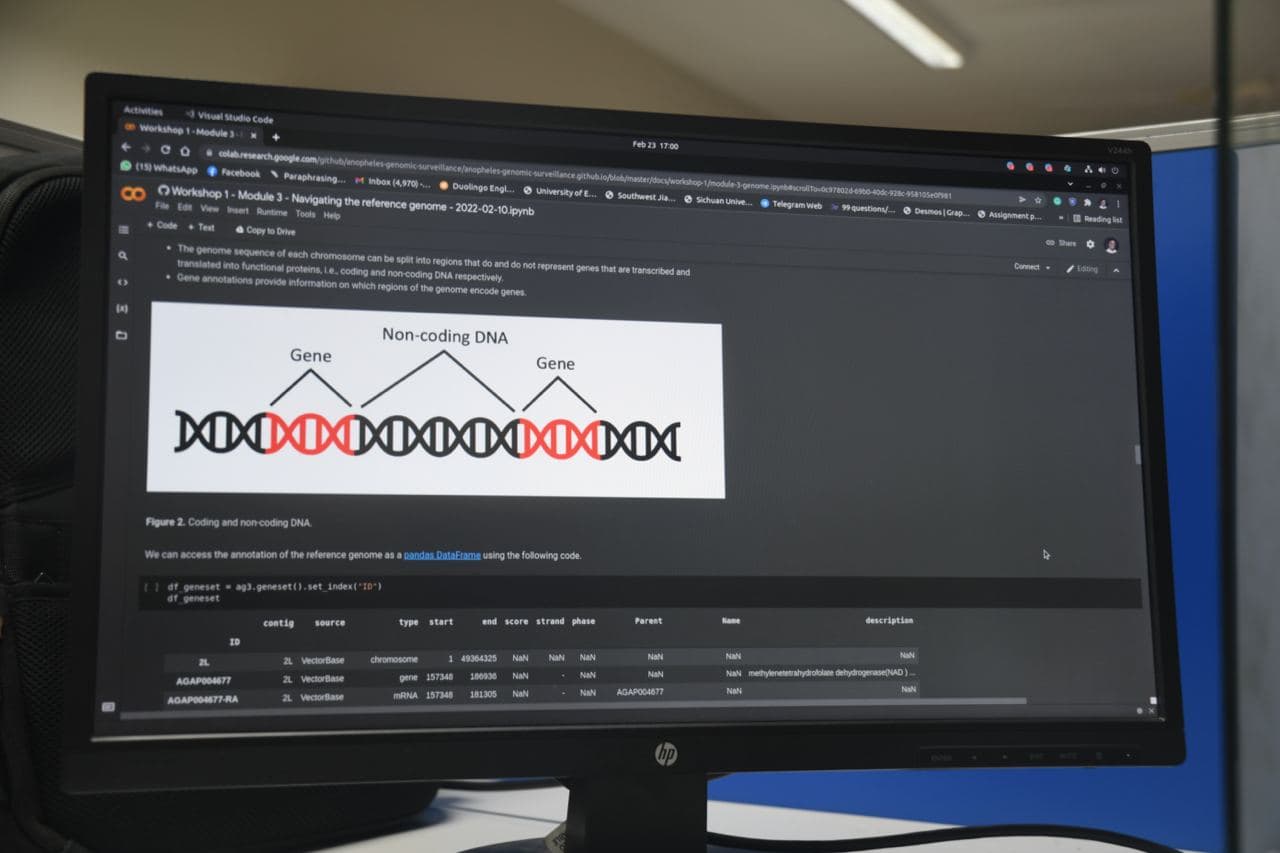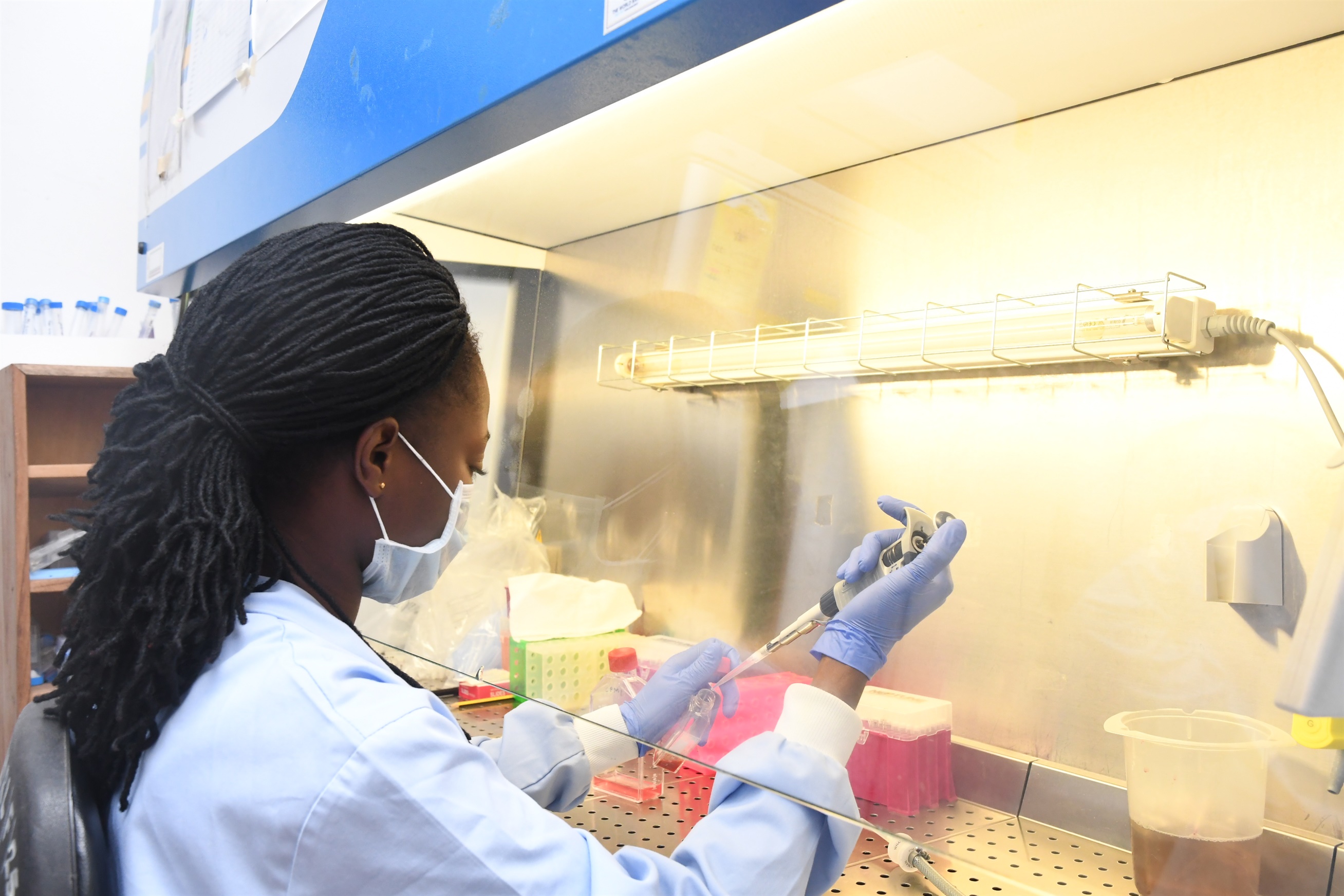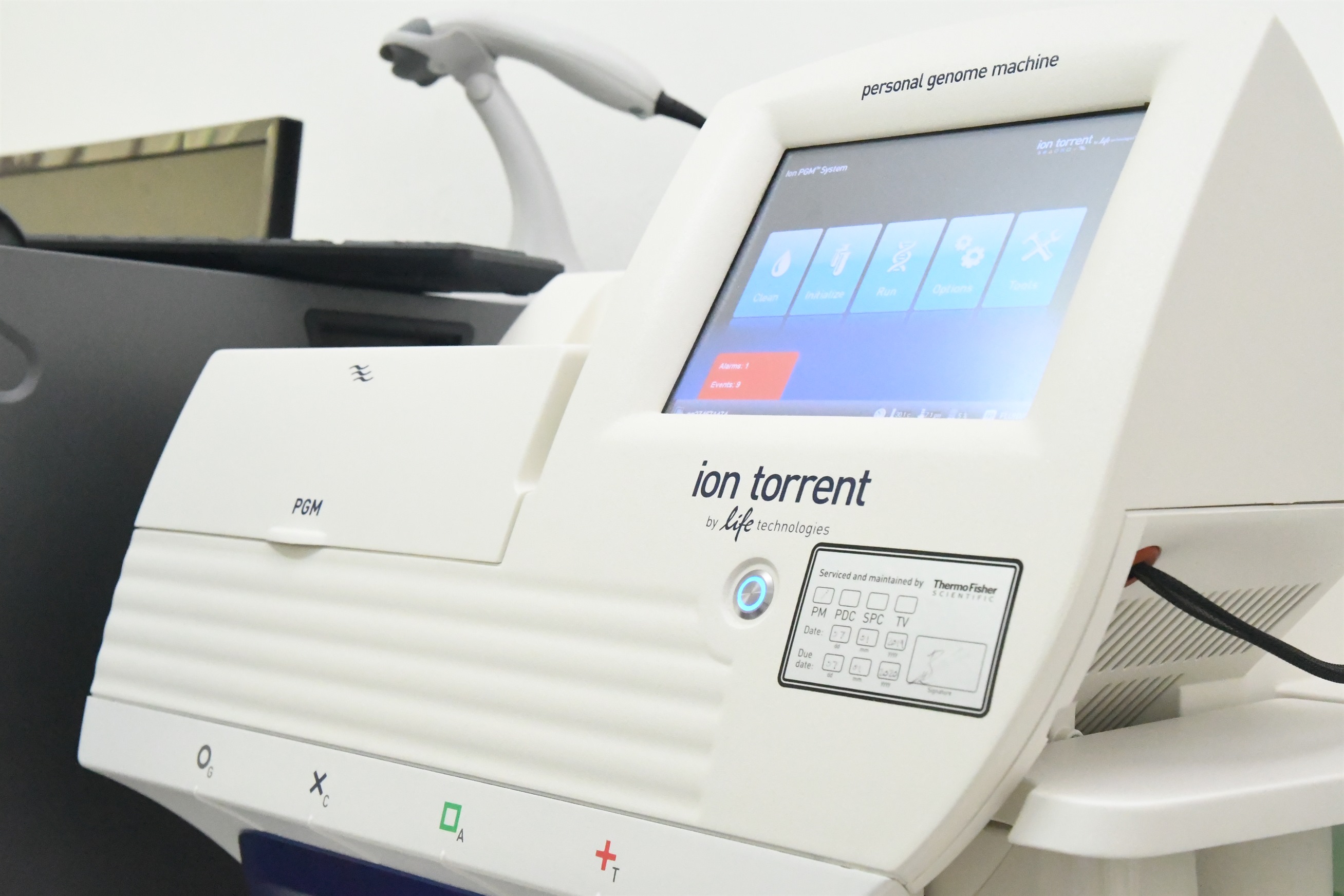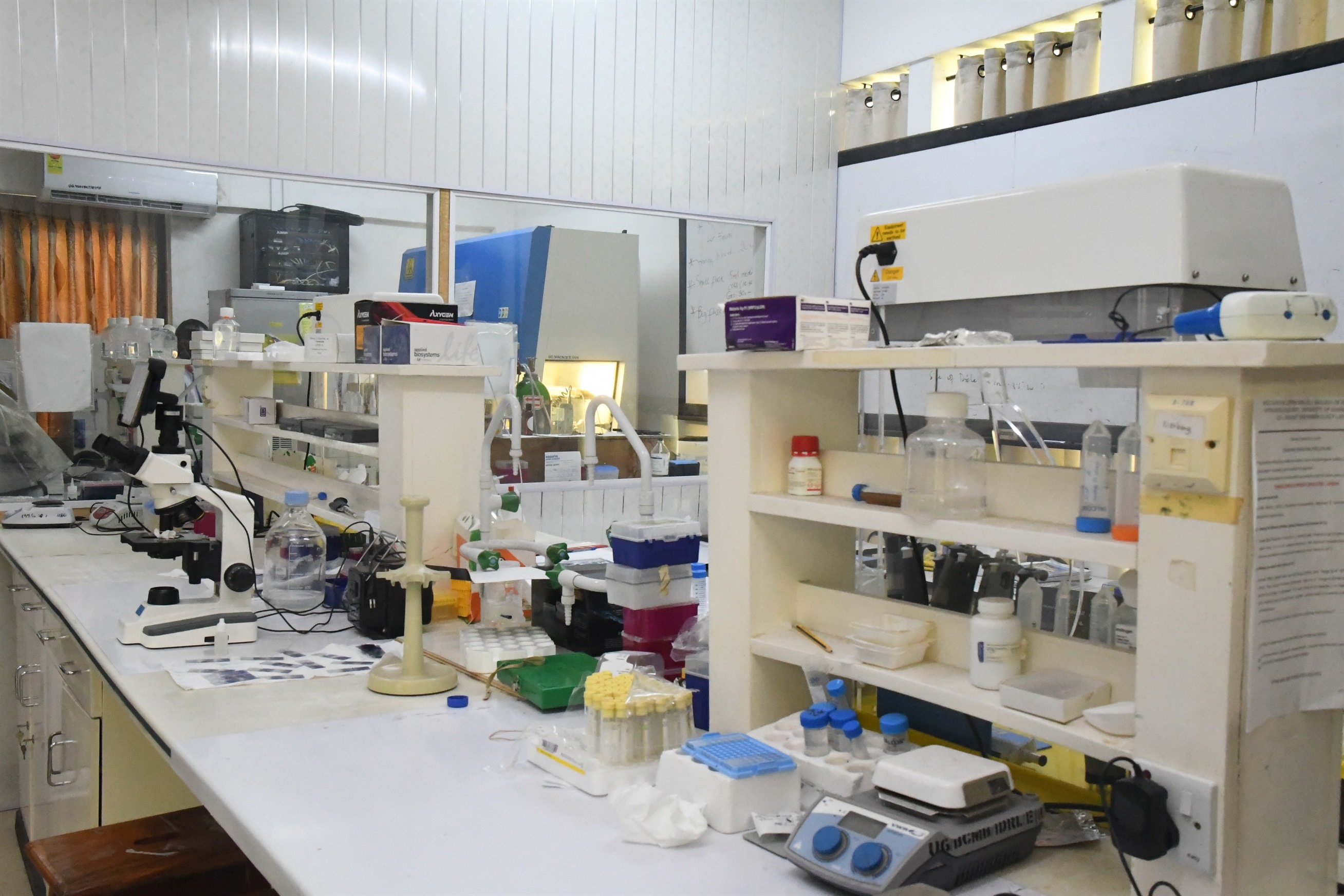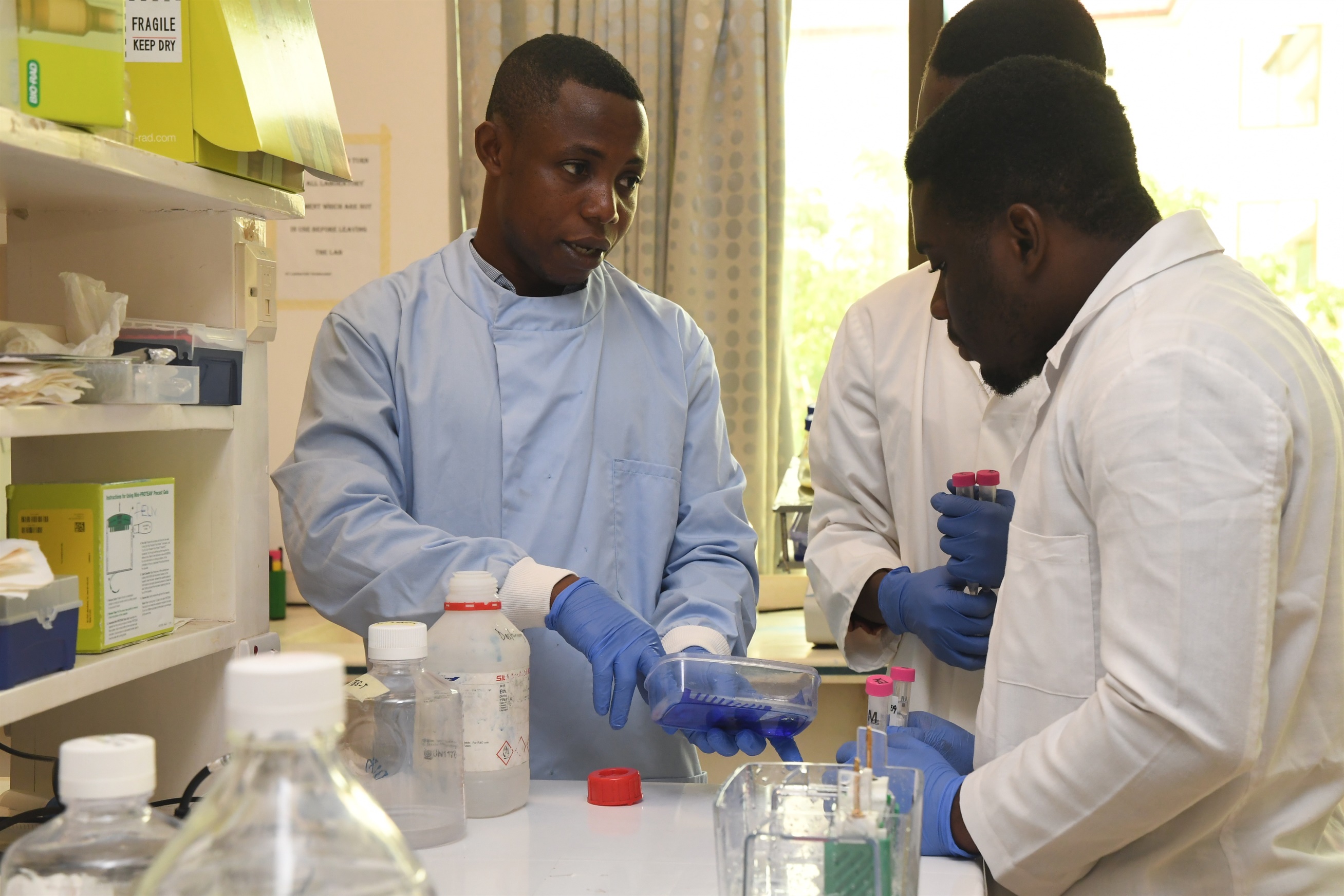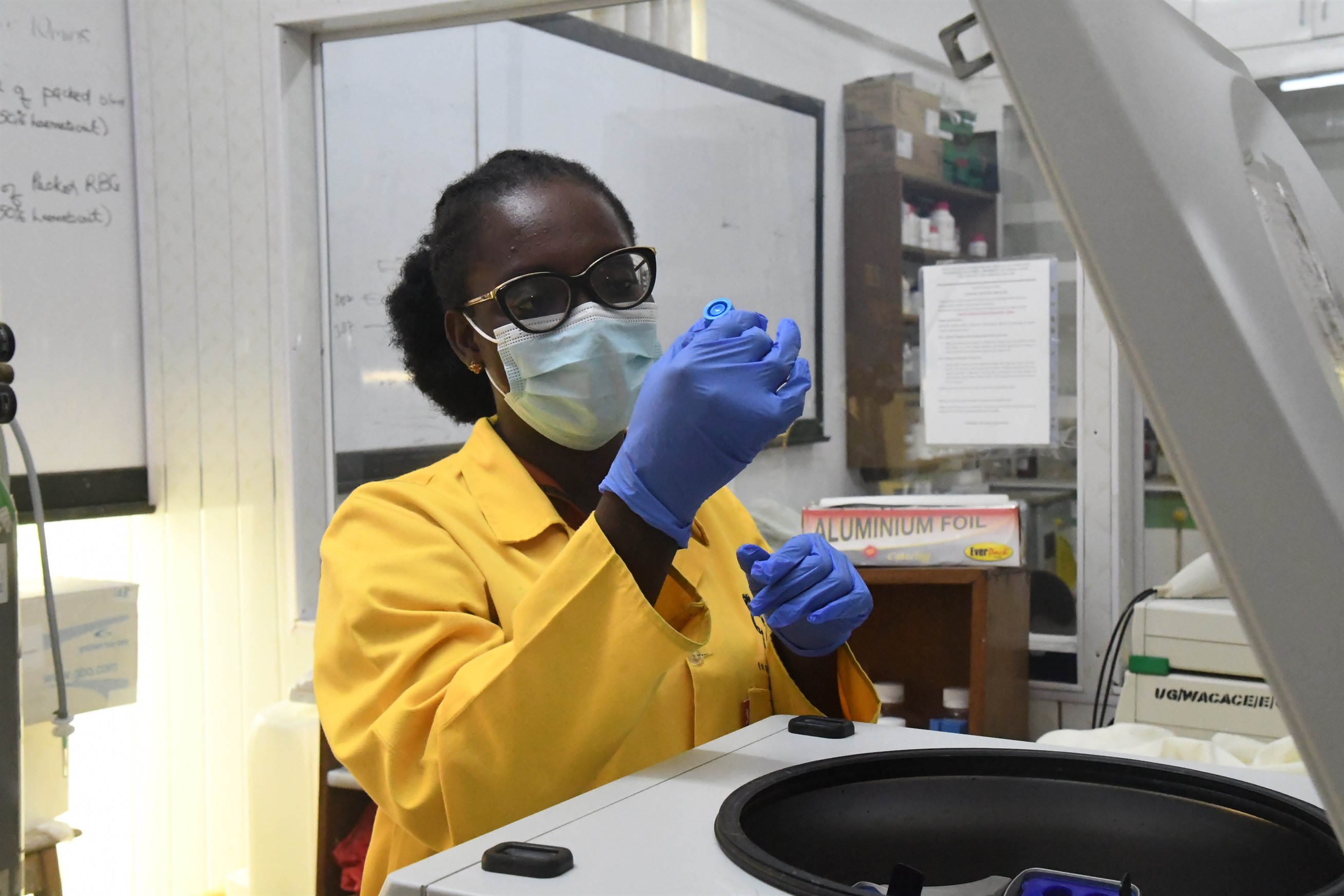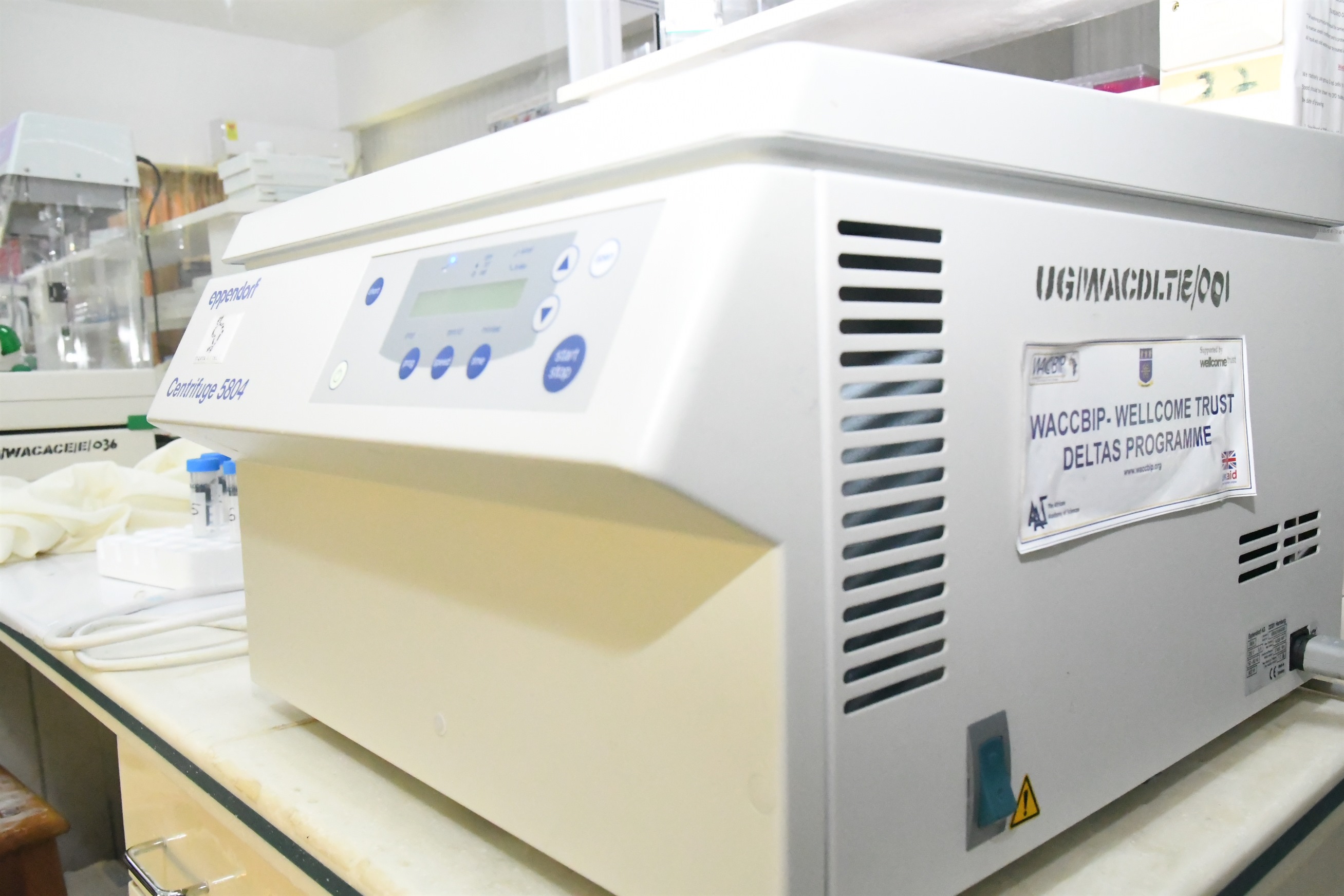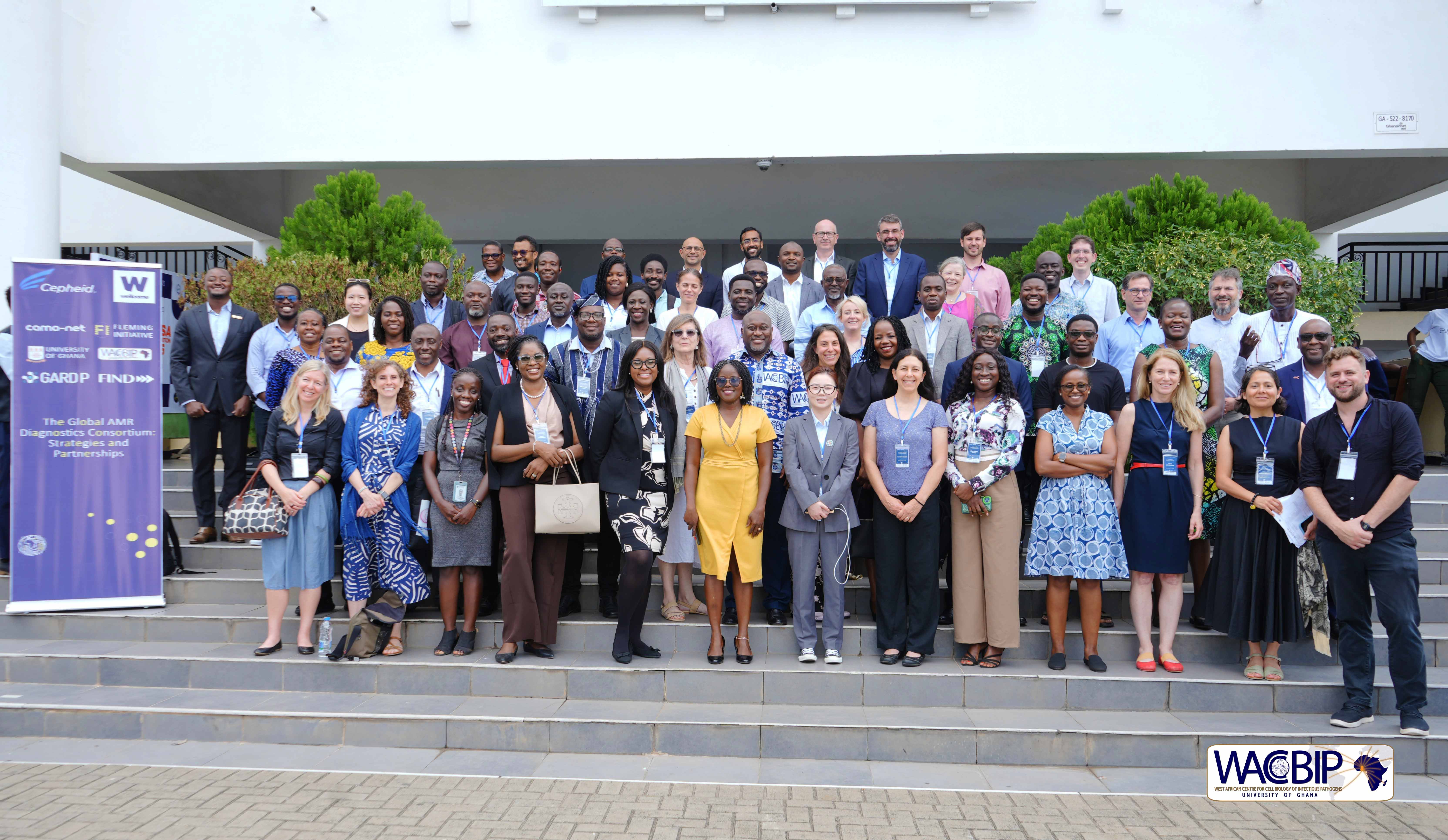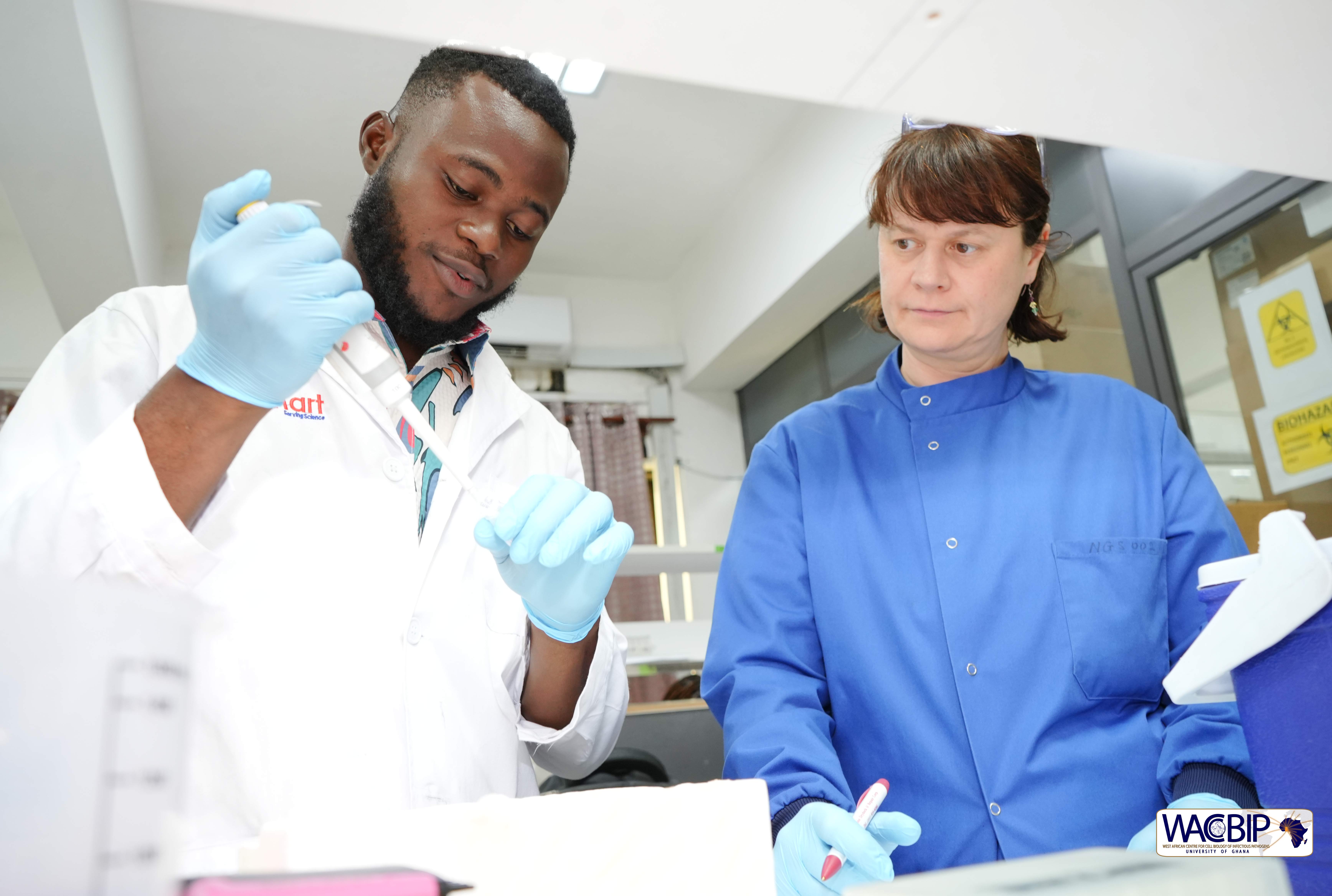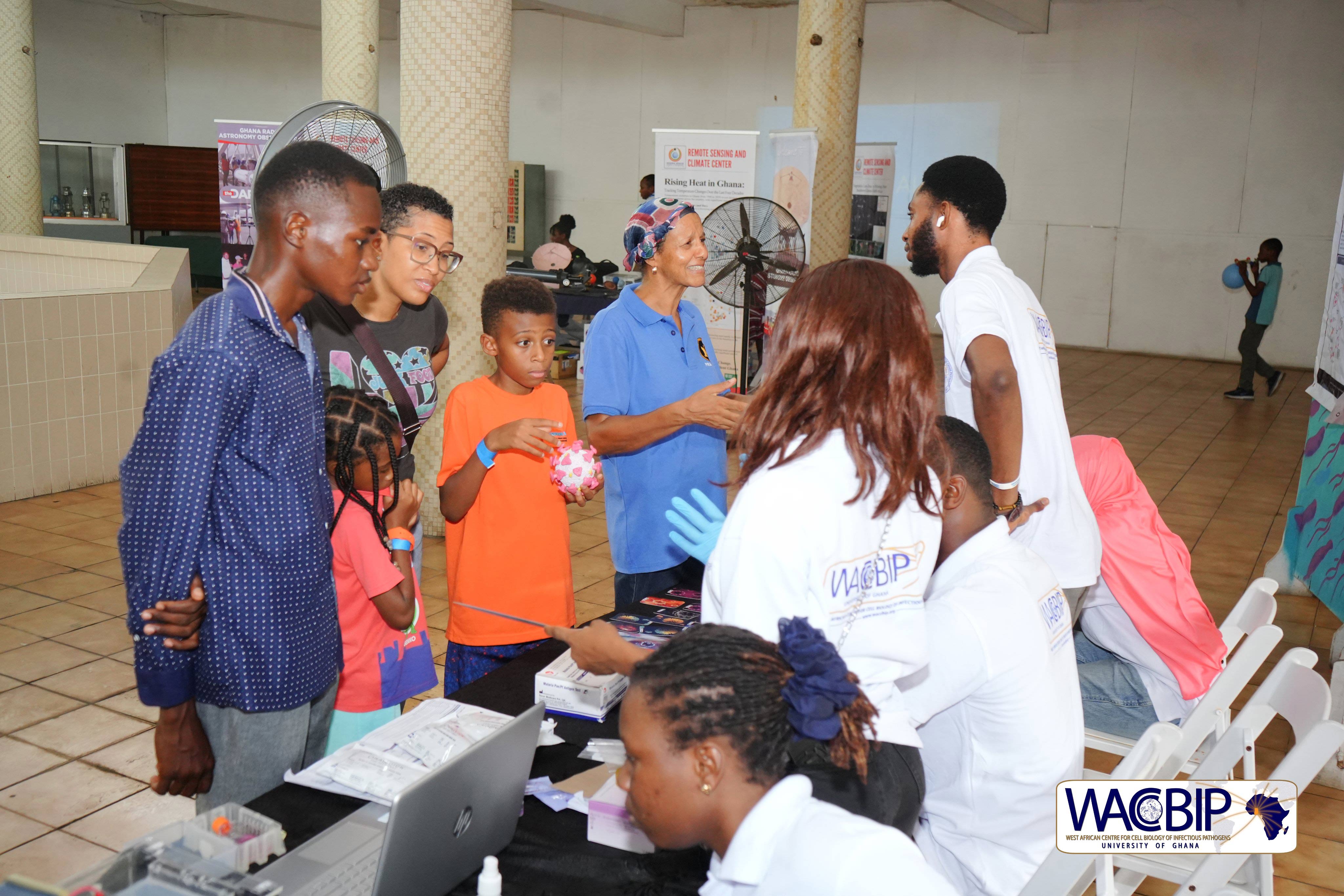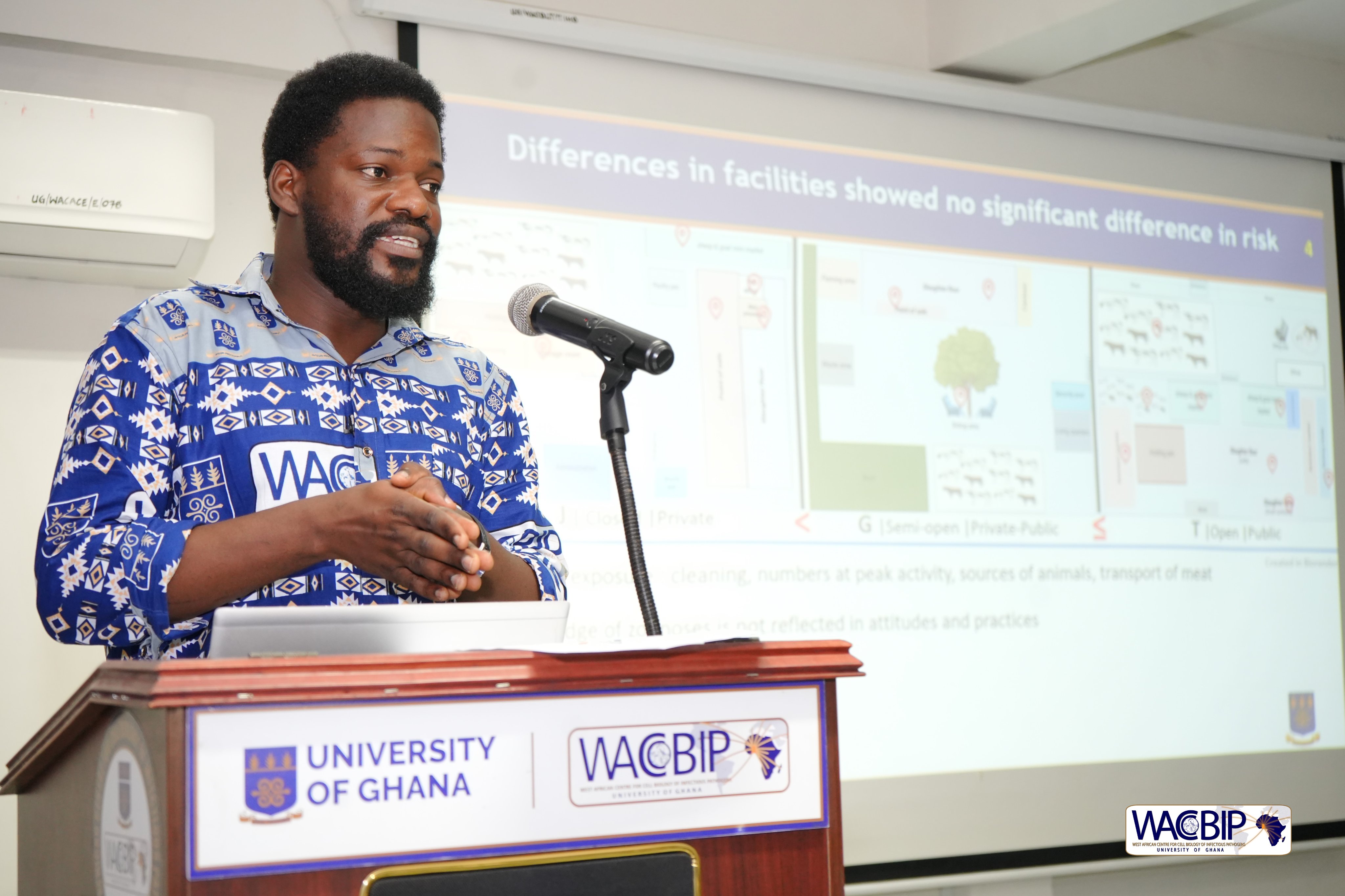Cell Biology
& Immunology
Laboratory
The Laboratory is primarily used by the Awandare Research Group and the Genomics and Bioinformatics Research Group
ABOUT
The Cell Biology and Immunology Laboratory (formerly known as Infectious Diseases Research Laboratory) was established in 2011 after the return of Prof. Gordon Awandare to the University of Ghana from the Walter Reed Army Institute in the United States of America, where he had taken a 3-year post-doctoral research position after obtaining his PhD from the University of Pittsburgh. The lab is set up for research in pathogen biology and host immune responses.The establishment of the laboratory was initially supported by grants from the Royal Society-Leverhulme Trust, UK and the National Institutes of Health (NIAID-NIH), USA. Subsequently, additional equipment have been acquired through the World Bank African Centres of Excellence Project and the African Academy of Sciences/Wellcome Trust DELTAS programme. With a culture lab equipped with two certified biosafety cabinets, a dark room for microscopy and flow cytometry, a PCR bench with QuantStudio 5 and a workstation, and optimised work spaces, the lab is highly resourced for the conduct of cutting-edge research.Researchers have access to a flow cytometer (BD-LSR -18 colour), a high-end confocal microscope (Zeiss LSM 800), fluorescence microscopes, and a gel imager, among other equipment provided to make the conduct of research easier and more efficient.
The Awandare Group
The Awandare Research Group focuses on the biology and pathogenesis of Plasmodium falciparum malaria, including providing a better understanding of host immune responses and exploitation of parasite invasion mechanisms for vaccine development.
Read More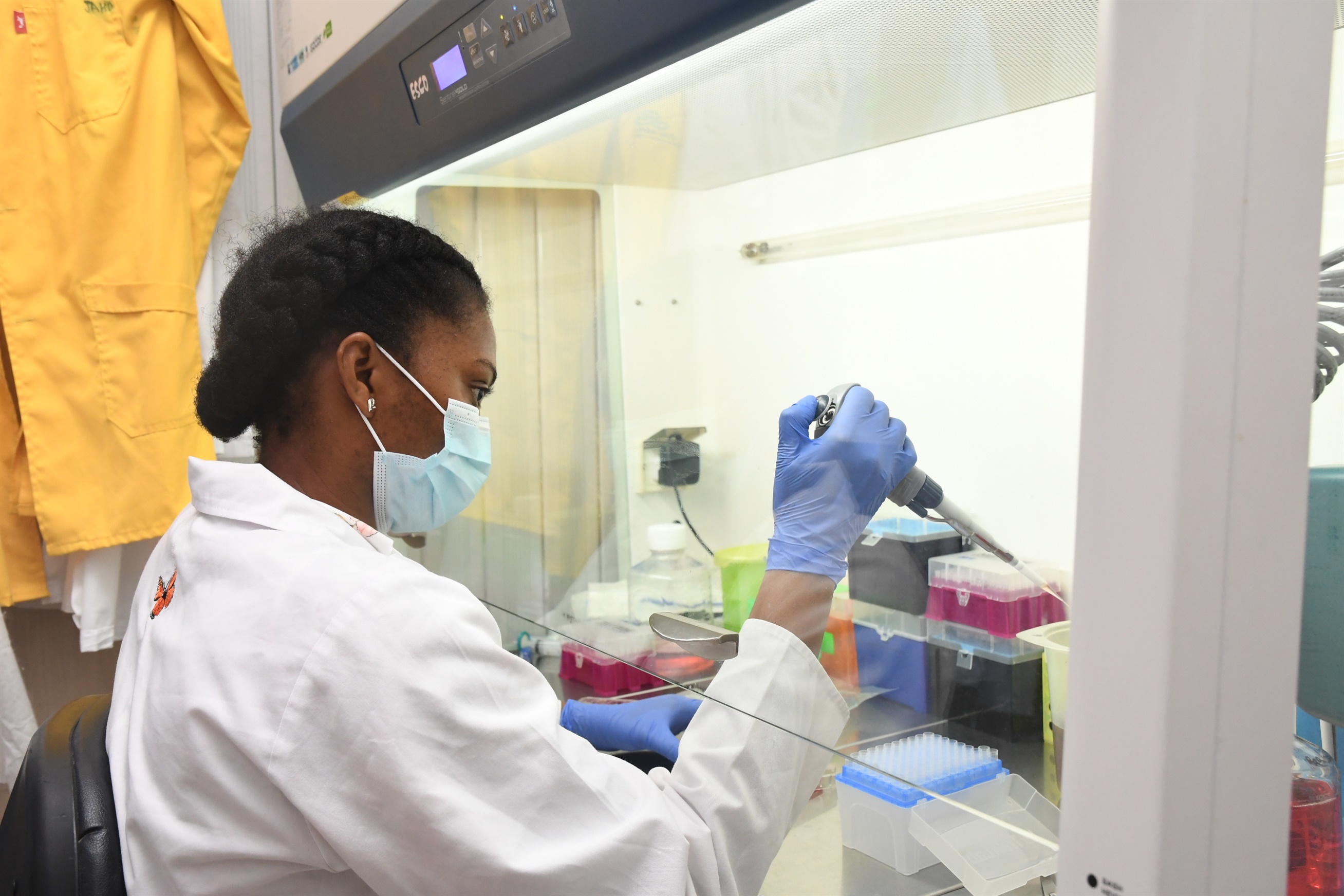
The Genomics and Bioinformatics Group
The Genomics and Bioinformatics Group focuses on pathogen genomics, Machine Learning, Human genetics,host pathogen interactions and Drug resistance.
